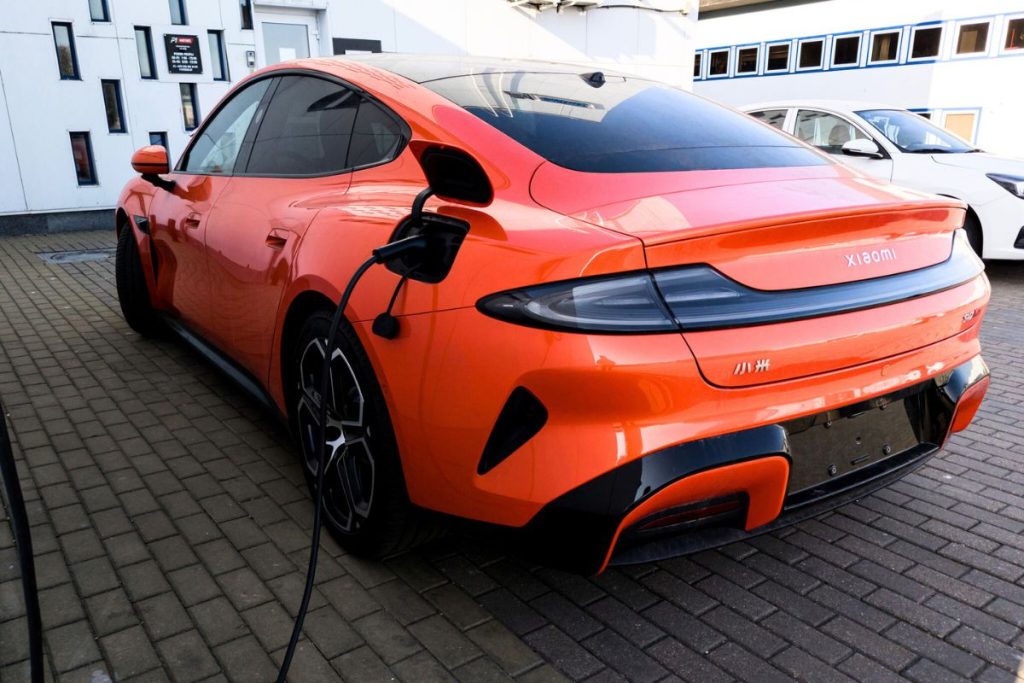In a surprising move that has shaken up the automotive industry, Chinese tech giant Xiaomi has entered the world of electric vehicles (EVs) with an impressive debut. While the company is already well-known for its smartphones and cutting-edge technology, its electric sedan, the SU7, has just achieved a remarkable feat in safety ratings, proving that Xiaomi is more than just a tech company—it’s a serious contender in the automotive market.
A Record-Breaking Safety Performance
Xiaomi’s SU7 Max, an all-electric sedan, has earned a 5-star rating in the C-NCAP (China New Car Assessment Program), which is the Chinese equivalent of Euro NCAP. What sets this achievement apart is the impressive 93.5% safety score, the highest recorded in 2024 for any car tested. This score is 8.7% higher than the average for other vehicles, marking the SU7 as the safest car in its class.
Breaking down the results, the SU7 Max excelled in several key areas:
- 95.25% in active safety—a remarkable figure that showcases the car’s advanced safety features.
- 94.31% in occupant protection, ensuring that both the driver and passengers are well-protected in the event of a collision.
- 90.42% in pedestrian protection, which is an outstanding result that’s 13.14% above the average—a crucial aspect for urban safety.
This level of safety performance is all the more impressive considering that this is Xiaomi’s very first foray into car manufacturing. The SU7 Max, equipped with a Lidar Hesai system and Xiaomi Pilot Max driving assistance, demonstrates the company’s ability to integrate advanced technology into its vehicles to ensure maximum safety.
A Swift Commercial Success
Launched in March 2024, the SU7 quickly became a bestseller in China, with 186,112 units sold in a short period. This level of demand far exceeds supply, with waiting times stretching up to 11 months for new buyers. The success of the SU7 can be attributed to several factors, including Xiaomi’s reputation for affordable, high-tech products, the attractive price point, and the company’s innovative approach to vehicle design.
The SU7 Max is priced at 299,900 yuan (around €38,000), making it a competitive offering in the Chinese market. The vehicle is equipped with a dual-motor powertrain, boasting a combined output of 495 kW (673 hp), allowing for an acceleration from 0 to 100 km/h in just 2.8 seconds. The SU7 Max offers a range of up to 800 km on a single charge, making it not only fast but also highly efficient. With 800V battery architecture, it can achieve 220 km of range in just 5 minutes of charging, setting it apart from other EVs in terms of convenience and performance.
Safety First: A Robust Body Structure and Smart Features
Xiaomi’s commitment to safety goes beyond just the crash test results. The SU7 Max is built with a 61% high-strength steel body structure, combined with progressive deformation zones that absorb energy effectively during impacts. This design ensures that the vehicle is incredibly robust, offering passengers superior protection.
The 360° active protection system includes an array of sensors that monitor the vehicle’s surroundings at all times:
- A next-generation Lidar Hesai for precise environmental awareness.
- 11 high-definition cameras for constant surveillance.
- 5 additional radars to ensure reliable detection, even in adverse weather conditions.
Thanks to the onboard artificial intelligence, the system processes data in real-time to predict potential hazards and intervene before the driver even notices a threat. This feature was particularly effective in the emergency braking and lighting efficiency tests, where it achieved near-record-breaking results.
Xiaomi’s Global Automotive Ambitions
Xiaomi’s SU7 has already made waves in the Chinese market, but the company’s ambitions go far beyond its home country. With the success of the SU7, Xiaomi is preparing to launch its second model, the YU7 electric SUV, to diversify its portfolio and tap into new market segments.
Though Xiaomi hasn’t yet confirmed its international expansion plans, the SU7’s exceptional safety ratings and impressive performance put it in a strong position to compete in global markets, particularly in Europe, where safety is a critical concern for consumers. The company has already invested heavily in a state-of-the-art factory in Beijing, which is capable of producing up to 200,000 vehicles per year, with plans to scale production further if the demand from international markets increases.
For Xiaomi, the SU7 is more than just a car; it represents a new era in the automotive industry, where tech giants like Xiaomi are challenging traditional car manufacturers by leveraging their expertise in electronics and smart technologies to create safe, high-performance vehicles. With its impressive debut, Xiaomi is signaling that it has the potential to be a major player in the global automotive market.



